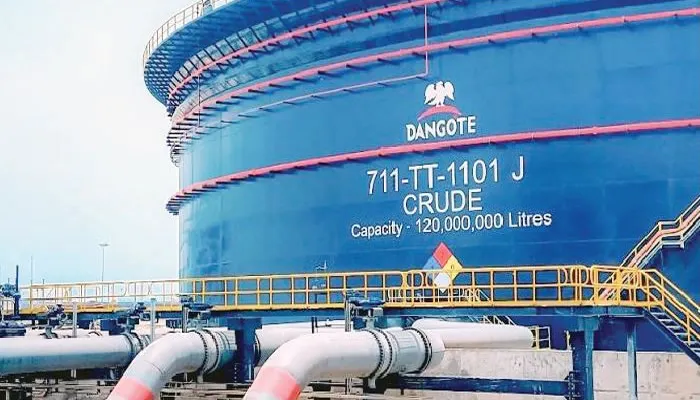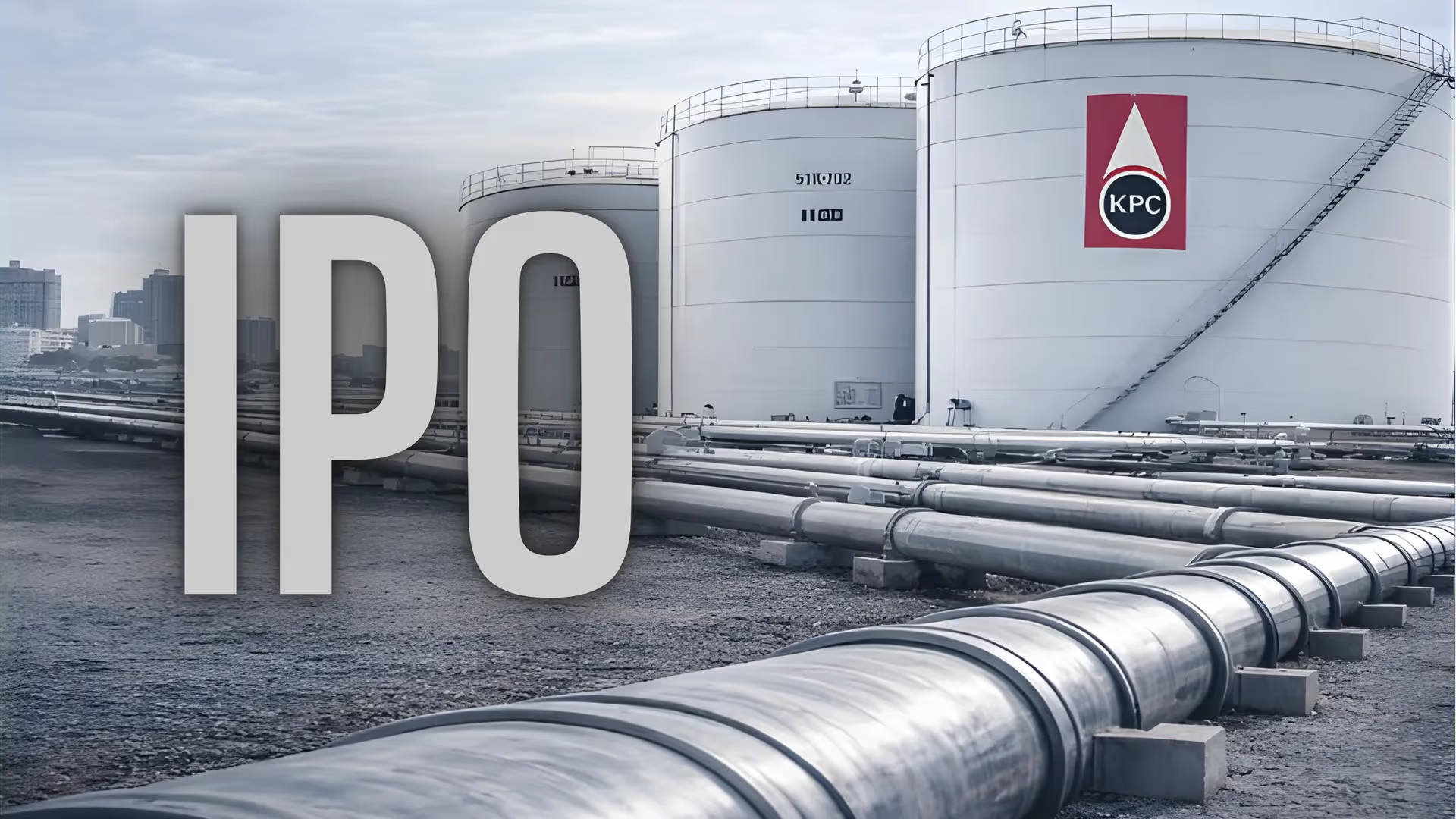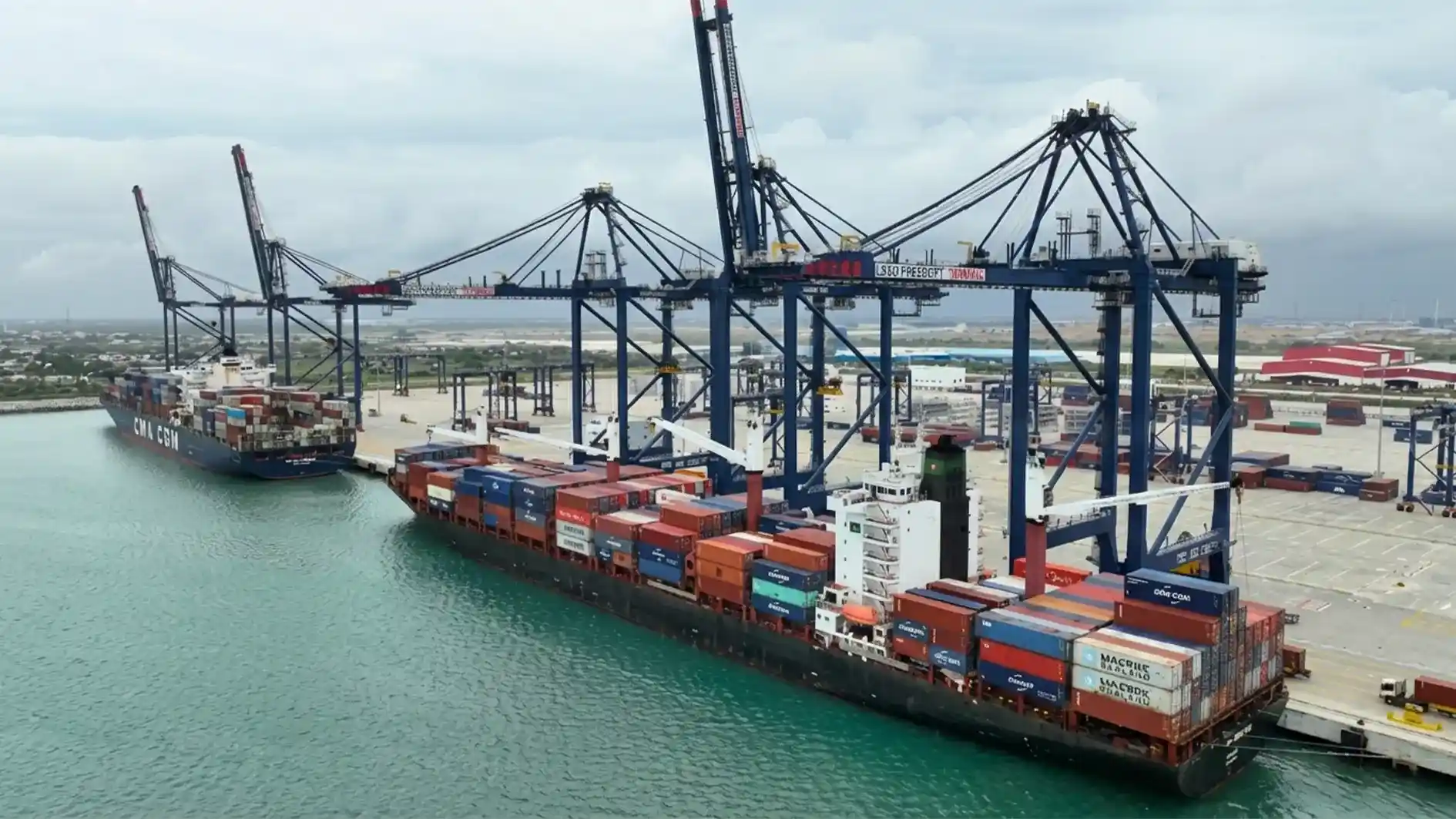In a significant development for global energy markets, Asia is poised to receive an additional shipment of fuel oil from Nigeria’s flagship Dangote refinery this April. This move, announced via the refinery’s latest tender, underscores Nigeria’s expanding role as a key supplier of refined petroleum products to Asia’s energy-hungry markets. With the cargo scheduled for loading between April 17 and April 19, industry sources have noted that the tender offers a combination of about 85,000 metric tons of low-sulphur straight-run fuel oil along with 35,000 tons of slurry. This announcement comes on the back of a recent record month in March when Asia received more than 300,000 tons of Nigerian fuel oil, data from shipping analytics firm Kpler shows.
A New Chapter for Nigeria’s Refining Ambitions
Nigeria’s Dangote refinery, located in the Ibeju Lekki district on the outskirts of Lagos, has long been a symbol of the country’s ambition to transform its domestic energy landscape. Developed by the Dangote Group—led by Africa’s richest man, Aliko Dangote—the refinery is not only the largest in Africa but is also expected to significantly reduce Nigeria’s reliance on imported refined petroleum products. With an annual capacity that places it among the top refineries globally, its ability to export additional fuel oil to major markets like Asia signals the maturity and flexibility of its operations.
The current tender, which closes this Friday, is part of the refinery’s strategy to optimize its output by capitalizing on market demand. While Dangote refines fuel oil on an occasional basis depending on plant status and market dynamics, this latest tender illustrates a deliberate push to capture a larger share of the Asian market. Asia, with Singapore as its prominent oil hub, has been a consistent destination for Dangote’s fuel oil exports. Last year, the region emerged as the top destination for these products, driven by robust demand from shipping, power generation, and heavy industries.
Cargo Details and Market Impact
The upcoming shipment is set to comprise two distinct components:
- Low-Sulphur Straight-Run Fuel Oil (85,000 Metric Tons): This product is highly valued in markets that require cleaner fuel for industrial applications. Its low sulphur content makes it a preferred choice for power generation and marine fuel use, where environmental regulations are becoming increasingly stringent.
- Slurry (35,000 Metric Tons): Typically a byproduct of refining processes, slurry is also finding an expanded market as industries look to repurpose it for various applications, including as a component in construction materials or for further refining.
The combination cargo represents a strategic attempt by Dangote to balance its product portfolio in response to dynamic global demand. Market analysts expect that the additional supply of fuel oil will help cap regional fuel oil benchmarks, which have already softened in recent sessions due to heightened supply levels. The increased availability of fuel oil in Asia may put downward pressure on prices, a development welcomed by downstream industries facing rising input costs.
Broader Global Energy Trends
The Role of Residual Fuel Oil
Residual fuel oil, often derived from the heavier fractions of crude oil, is a crucial component in global energy consumption. It is widely used in maritime shipping, industrial boilers, and power generation plants, particularly in regions where cleaner fuels are either too costly or unavailable. Despite a gradual shift toward cleaner energy sources and renewable alternatives, residual fuel oil continues to play an essential role in the global energy mix.
The renewed emphasis on fuel oil exports by Nigeria comes at a time when global energy markets are navigating the dual challenges of supply-chain disruptions and the gradual transition to greener fuels. Although international environmental policies and consumer preferences are pushing for cleaner alternatives, many industries still depend on residual fuel oil for its affordability and energy density. As a result, Dangote’s ability to supply this commodity provides a critical cushion for markets undergoing this energy transition.
Asia’s Dynamic Energy Market
Asia has long been recognized as a powerhouse in the global energy sector. From Singapore’s bustling oil terminals to the extensive industrial hubs across China, India, and Southeast Asia, the region represents a massive demand center for refined petroleum products. The softening of fuel oil benchmarks in recent sessions is indicative of the broader market trend, where increased supply is beginning to counteract previously tight market conditions.
In addition to traditional applications, Asia’s energy consumers are increasingly exploring ways to integrate advanced technologies into their supply chains. Digital platforms and real-time data analytics are becoming commonplace, helping traders and end-users better manage price volatility and optimize procurement strategies. With Asia’s fuel oil imports reaching record highs, Dangote’s consistent supply is set to play an influential role in stabilizing regional markets amid these technological shifts.
The Dangote Refinery: A Beacon of Nigeria’s Industrial Ambition
Historical Context and Operational Excellence
Since its inception, the Dangote refinery has been a focal point of Nigeria’s industrial and economic development plans. Initially conceptualized to address chronic supply shortages and high import dependency, the refinery’s development was a bold assertion of Nigeria’s intent to build domestic capacity for refined petroleum products. Today, the refinery stands as a testament to this vision, boasting state-of-the-art technology and a production capacity that is expected to dramatically transform Nigeria’s energy sector.
The refinery’s operational excellence is underpinned by its ability to adapt to changing market conditions. By offering fuel oil exports on an occasional basis, Dangote demonstrates a keen sensitivity to market signals and a willingness to seize opportunities as they arise. This operational flexibility is crucial in an industry characterized by cyclical demand, geopolitical tensions, and regulatory shifts.
Economic and Social Impacts
The expansion of fuel oil exports from the Dangote refinery is not merely an industrial achievement; it also carries significant economic and social implications for Nigeria. The Dangote Group, through its myriad investments and projects, has been a major contributor to job creation, skills development, and industrial growth in the region. As the refinery ramps up its export volumes, it is expected to generate additional employment opportunities and stimulate ancillary industries such as logistics, ship repair, and port services.
For many communities in Nigeria, the success of the Dangote refinery translates into improved standards of living and greater economic resilience. Enhanced export revenues contribute to the national economy, which in turn can support critical infrastructure projects, education, and healthcare initiatives. This human-centric aspect of industrial development is a key component of Nigeria’s broader growth narrative.
Geopolitical Considerations and Market Dynamics
Nigeria’s Strategic Position in Global Energy
Nigeria, as Africa’s largest oil producer, occupies a strategically vital position in the global energy market. Historically known for its crude oil exports, Nigeria has, in recent years, made concerted efforts to diversify its economy and enhance its refining capacity. The Dangote refinery is a cornerstone of this transformation, representing Nigeria’s move toward value addition and industrialization. By refining its own crude oil, Nigeria aims to capture a larger share of the profits from its natural resources, rather than merely exporting raw materials.
The export of refined products such as fuel oil also allows Nigeria to tap into higher-margin markets and reduce the volatility associated with crude oil price fluctuations. With Dangote’s strategic tender offering further bolstering its export portfolio, Nigeria is well-positioned to leverage its energy assets to assert greater influence over regional and global markets.
Impact on Asian Energy Benchmarks
Asia’s energy market, particularly in oil and fuel products, is highly sensitive to changes in supply and demand dynamics. The arrival of additional fuel oil from the Dangote refinery is expected to influence regional benchmarks, which have been on a downward trend amid increased supply volumes. Market analysts predict that this influx could lead to more stable pricing and potentially lower costs for end-users in Asia.
For refiners and traders, the availability of competitively priced fuel oil is a welcome development. It provides a buffer against supply shortages and price spikes that can disrupt production schedules and increase operational costs. Moreover, as Asian economies continue to recover from global economic uncertainties, steady energy supplies become a critical factor in sustaining industrial growth and ensuring energy security.
Balancing Global Trade and Regional Integration
The dynamics of fuel oil exports from Nigeria also reflect broader themes in global trade and regional integration. With countries increasingly focusing on securing reliable sources of energy, the interplay between supply chain logistics, market competition, and regulatory frameworks becomes ever more complex. Nigeria’s enhanced role as an exporter of refined products contributes to the diversification of supply sources, thereby reducing the dependency on traditional suppliers from the Middle East and other regions.
At the same time, regional hubs like Singapore are not just passive recipients of these exports—they are active players in global trade, leveraging their strategic locations and advanced port facilities to facilitate smooth, efficient transactions. The symbiotic relationship between exporting countries and importing hubs is a critical factor in ensuring the smooth flow of energy commodities in an increasingly interconnected world.
Industry Insights and Future Projections
Market Sentiment and Strategic Outlook
Industry insiders have been closely monitoring the developments at Dangote refinery, with many expressing cautious optimism about the long-term implications of the increased fuel oil exports. Trade sources suggest that the additional tender reflects a broader strategy to capitalize on market opportunities while maintaining operational flexibility. This approach is expected to have a stabilizing effect on both Nigeria’s export revenues and Asia’s supply chains.
One industry expert noted, “The new tender is a clear signal that Dangote is not only committed to meeting domestic demand but is also keenly aware of the global market dynamics. By offering a blend of high-quality, low-sulphur fuel oil and slurry, they are positioning themselves to capture a larger share of the Asian market, which remains highly competitive.” Such perspectives underscore the strategic foresight that has guided the Dangote Group’s expansion efforts, and highlight the intricate balance between production capabilities and market needs.
Anticipating Future Trends
Looking ahead, several key trends are expected to shape the future of fuel oil exports and global energy markets:
- Technological Advancements: The integration of advanced refining technologies, digital supply chain management, and real-time data analytics will continue to drive operational efficiencies. For Dangote refinery, these advancements mean better production planning, reduced downtime, and enhanced product quality, all of which contribute to maintaining a competitive edge.
- Environmental Considerations: As global environmental regulations tighten and the push for cleaner energy intensifies, refiners are increasingly focused on producing lower-sulphur fuels and minimizing carbon emissions. The emphasis on low-sulphur straight-run fuel oil in the current tender is indicative of this trend, ensuring that the products meet stringent environmental standards while catering to market demands.
- Market Diversification: While Asia remains a critical market, both exporters and importers are actively seeking to diversify their supply chains to mitigate risks. Nigeria’s growing portfolio of refined product exports is likely to attract attention from other regions, including parts of Europe and the Middle East, further enhancing the country’s role as a global energy supplier.
- Economic Resilience: In an era of economic uncertainty, the ability to secure reliable energy supplies is paramount. Nigeria’s continued investment in refining capacity not only bolsters its domestic energy security but also contributes to the stability of global markets. As countries strive to balance growth with sustainability, the availability of competitively priced fuel oil will remain a crucial element in economic planning.
Humanizing the Impact: Stories from Within the Industry
Beyond the economic and technical details, the narrative of increased fuel oil exports from Dangote refinery is also about the people whose lives are intertwined with these developments. In communities around Lagos and the Dangote refinery, the ripple effects of expanded exports are felt every day. Workers in the refinery, port staff, and logistics personnel share stories of pride in contributing to a national project that is redefining Nigeria’s energy landscape.
One refinery technician, who preferred to remain anonymous, remarked, “Every day, we work knowing that our efforts are not just powering Nigeria, but also fueling economies thousands of miles away. It’s a challenging job, but the thought that our work reaches places like Singapore fills us with pride.” Such voices underscore the human element behind the massive industrial operations and remind us that behind every shipment, there is a network of dedicated professionals driving the process.
Community leaders have also noted that increased refinery activity often translates into better local infrastructure and more educational opportunities. With the Dangote Group’s emphasis on corporate social responsibility, many community initiatives—ranging from healthcare programs to skill development workshops—are funded by the revenues generated through these exports. This connection between industrial success and community development is a cornerstone of Nigeria’s broader economic vision.
Conclusion: Navigating a Transformative Phase in Global Energy Trade
As Asia braces to receive more fuel oil from Nigeria’s Dangote refinery, the global energy landscape is witnessing a transformative phase. This development is not merely about increased volumes and competitive pricing—it represents a broader narrative of industrial ambition, technological innovation, and the enduring human spirit that drives progress. The tender, set to close this Friday, is a microcosm of the dynamic interplay between supply and demand, strategy and execution, local pride and global opportunity.
For Nigeria, the expansion of refined product exports marks a pivotal moment in its journey toward energy self-sufficiency and economic diversification. For Asia, it is a reminder of the importance of reliable, competitively priced energy supplies amid an evolving market landscape. And for the countless workers and communities who form the backbone of these industries, it is a story of resilience, hope, and the belief that even in times of challenge, progress is always within reach.
In the coming months, as cargoes load and benchmarks adjust, the world will be watching closely. The success of this tender may well set the tone for future trade dynamics, influencing everything from regional energy policies to global market strategies. Ultimately, while the numbers and statistics offer one perspective, the true story lies in the human connections, the technological innovations, and the shared vision of a more interconnected and resilient global economy.
As we navigate these complex times, the journey of Dangote refinery’s fuel oil exports serves as both a beacon of hope and a call to action—a call to innovate, to collaborate, and to build a future where energy fuels not just industries, but the aspirations and dreams of people around the world.
Ready to take your career to the next level? Join our dynamic courses: ACCA, HESI A2, ATI TEAS 7 , HESI EXIT , NCLEX – RN and NCLEX – PN, Financial Literacy!🌟 Dive into a world of opportunities and empower yourself for success. Explore more at Serrari Ed and start your exciting journey today! ✨
photo source: Google
By: Montel Kamau
Serrari Financial Analyst
3rd April, 2025
Article, Financial and News Disclaimer
The Value of a Financial Advisor
While this article offers valuable insights, it is essential to recognize that personal finance can be highly complex and unique to each individual. A financial advisor provides professional expertise and personalized guidance to help you make well-informed decisions tailored to your specific circumstances and goals.
Beyond offering knowledge, a financial advisor serves as a trusted partner to help you stay disciplined, avoid common pitfalls, and remain focused on your long-term objectives. Their perspective and experience can complement your own efforts, enhancing your financial well-being and ensuring a more confident approach to managing your finances.
Disclaimer: This article is for informational purposes only and does not constitute financial advice. Readers are encouraged to consult a licensed financial advisor to obtain guidance specific to their financial situation.
Article and News Disclaimer
The information provided on www.serrarigroup.com is for general informational purposes only. While we strive to keep the information up to date and accurate, we make no representations or warranties of any kind, express or implied, about the completeness, accuracy, reliability, suitability, or availability with respect to the website or the information, products, services, or related graphics contained on the website for any purpose. Any reliance you place on such information is therefore strictly at your own risk.
www.serrarigroup.com is not responsible for any errors or omissions, or for the results obtained from the use of this information. All information on the website is provided on an as-is basis, with no guarantee of completeness, accuracy, timeliness, or of the results obtained from the use of this information, and without warranty of any kind, express or implied, including but not limited to warranties of performance, merchantability, and fitness for a particular purpose.
In no event will www.serrarigroup.com be liable to you or anyone else for any decision made or action taken in reliance on the information provided on the website or for any consequential, special, or similar damages, even if advised of the possibility of such damages.
The articles, news, and information presented on www.serrarigroup.com reflect the opinions of the respective authors and contributors and do not necessarily represent the views of the website or its management. Any views or opinions expressed are solely those of the individual authors and do not represent the website's views or opinions as a whole.
The content on www.serrarigroup.com may include links to external websites, which are provided for convenience and informational purposes only. We have no control over the nature, content, and availability of those sites. The inclusion of any links does not necessarily imply a recommendation or endorsement of the views expressed within them.
Every effort is made to keep the website up and running smoothly. However, www.serrarigroup.com takes no responsibility for, and will not be liable for, the website being temporarily unavailable due to technical issues beyond our control.
Please note that laws, regulations, and information can change rapidly, and we advise you to conduct further research and seek professional advice when necessary.
By using www.serrarigroup.com, you agree to this disclaimer and its terms. If you do not agree with this disclaimer, please do not use the website.
www.serrarigroup.com, reserves the right to update, modify, or remove any part of this disclaimer without prior notice. It is your responsibility to review this disclaimer periodically for changes.
Serrari Group 2025
















